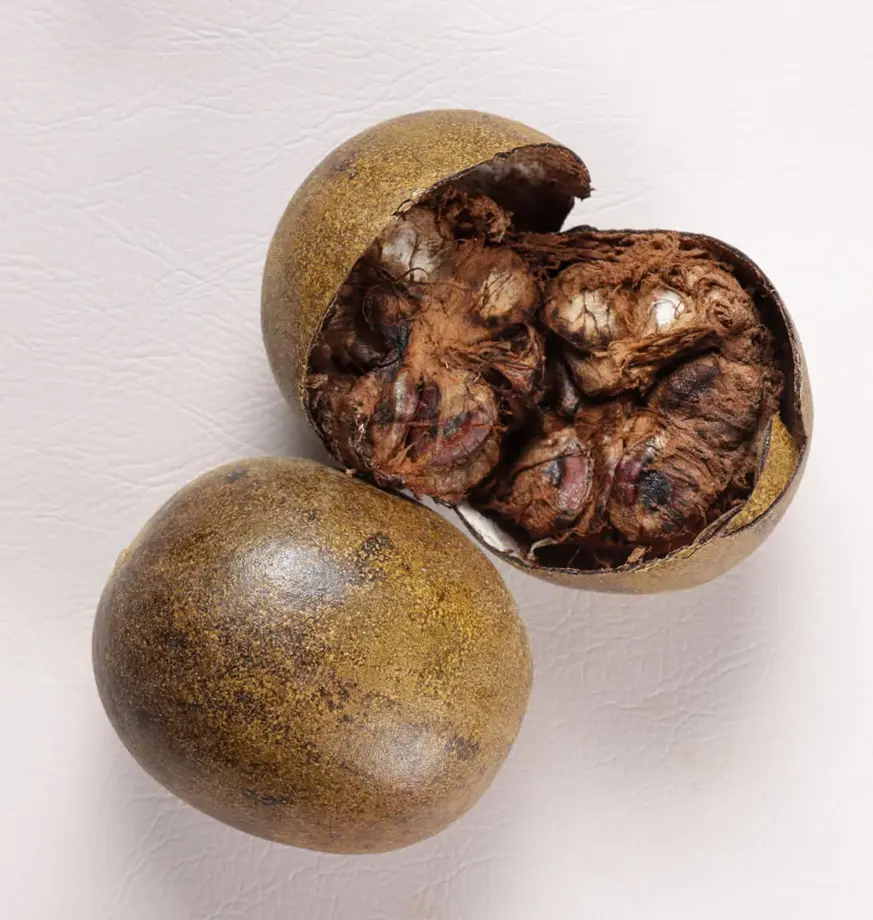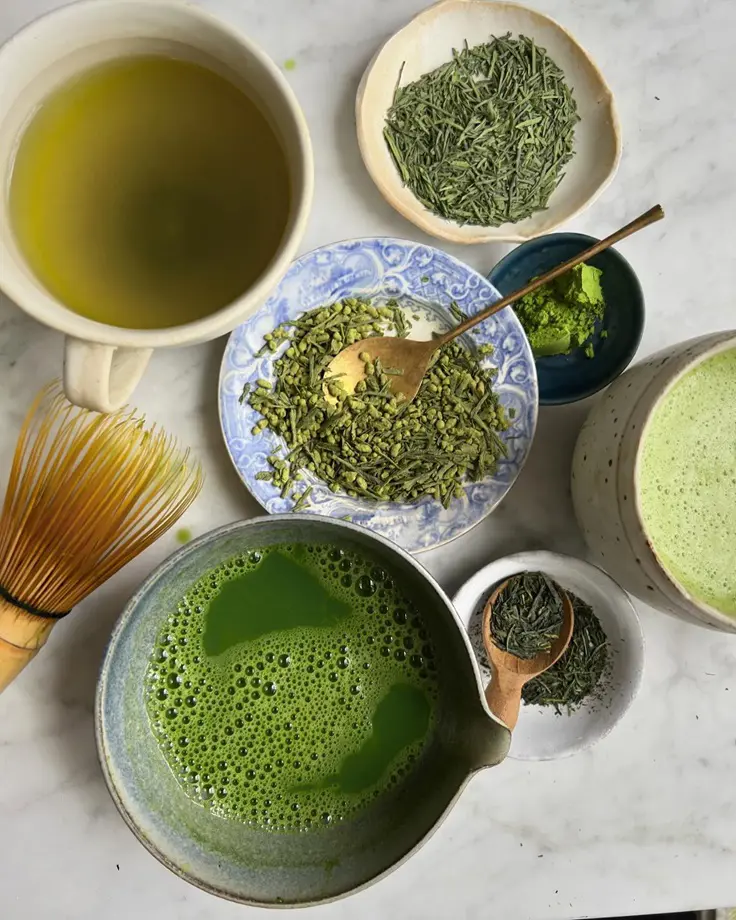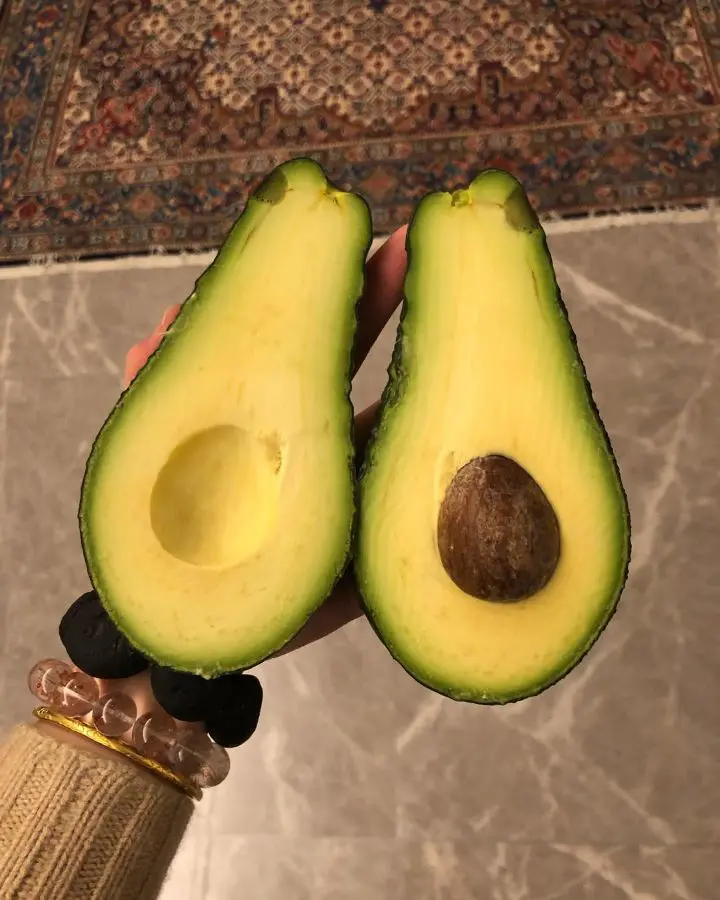Nutritional Yeast Benefits, Nutrition and Uses
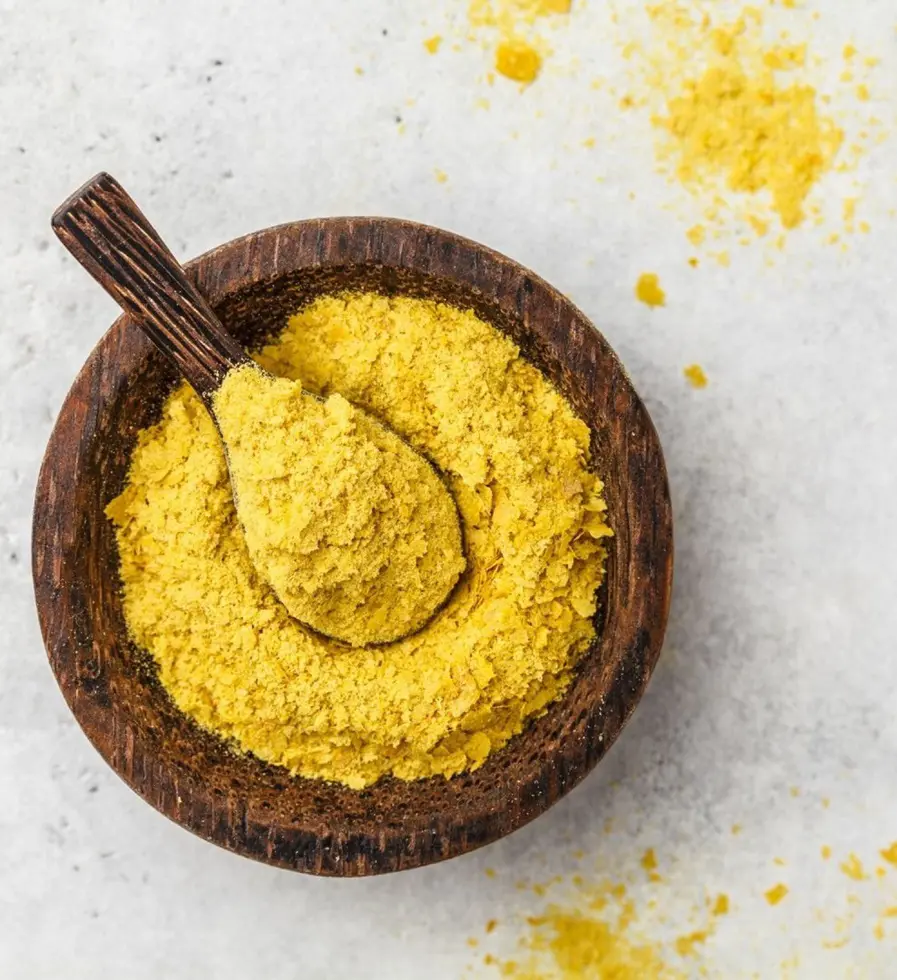
This post may contain affiliate links. If you make a purchase through links on our site, we may earn a commission.
Often called "nooch", nutritional yeast is a deactivated form of yeast. It is often used to make vegan and dairy-free items. Various studies show that nutritional yeast possesses a range of health benefits.
The mineral, vitamin, and antioxidant content function together to provide wellness to the body and enhance overall bodily function. In this article, we are about to have a look at various health aids, nutritional profiles, and uses of nutritional yeast.
Supports Immune System

One of the vital health aids, nutritional yeast offers is strengthening immune defense. Beta-glucan is abundantly found in nutritional yeast which possess powerful immune-boosting properties.
The fiber triggers the production of white blood cells and increases the readiness to fight off pathogens and infections. Also, this fiber reduces any kind of swelling in the body, which late can be a major cause for various chronic conditions.
It is a very tasty and smart option for anyone looking to enhance their immune health. This fiber eventually speeds up recovery from wounds and even decreases the severity of infection.
Bone Health

The minerals calcium, magnesium, and phosphorus are all present in good amounts in nutritional yeast and work together to keep our bones strong. These minerals maintain keeping of bone density helping the prevention way more likely that in order to get with decreased damaged safeguardedinjury.
Eating more nutritional yeast makes sure that you're receiving an adequate amount of essential B vitamins for bone health due to their role in collagen formation. This combination of vitamins and minerals is the reason why nutritional yeast is an important food item to improve your bone health.
Heart Health

Nutritional yeast is a heart health hero. Its fiber content helps decrease bad cholesterol levels by halting its absorption rate and effectively getting it out of the body.
This becomes important as it lowers the risk of buildup of cholesterol in the blood path, which can be a key factor in strokes and attacks.
Not only fiber, but the strong B vitamins play a crucial role in controlling homocysteine levels in the blood. An increase in this level can result in hazardous heart disorders. By supporting healthy cholesterol levels and regulating homocysteine, nutritional yeast can be a heart-healthy food.
Boosts Energy
If you are searching for a natural energy booster with taste and flavor, then nutritional yeast can be the perfect answer for you. It is an ideal option as the rich B vitamins present in it help to transform food into energy.
Without adequate B vitamins, the body can struggle to effectively use food as fuel which can lead to fatigue. This synthesization of food into energy can provide you with gradual and sustainable energy for longer body performance.
Protein present in nutritional yeast can provide a more sustained energy release. The healthy mixture of protein and vitamins makes nutritional yeast a must-have food for an energy boost.
Muscle Recovery Aid

Many athletes and active individuals can benefit from the nutritional yeast's rich protein and amino acid content. This makes it an essential supplement for effective muscle recovery.
Protein is very necessary for muscle repair and maintenance. This can lead to faster recovery times and improved tolerance of muscles.
The vitamin present in nutritional yeast generates sustained energy by converting food into energy. This aspect can be very beneficial during workouts and recovery.
Supports Liver Health
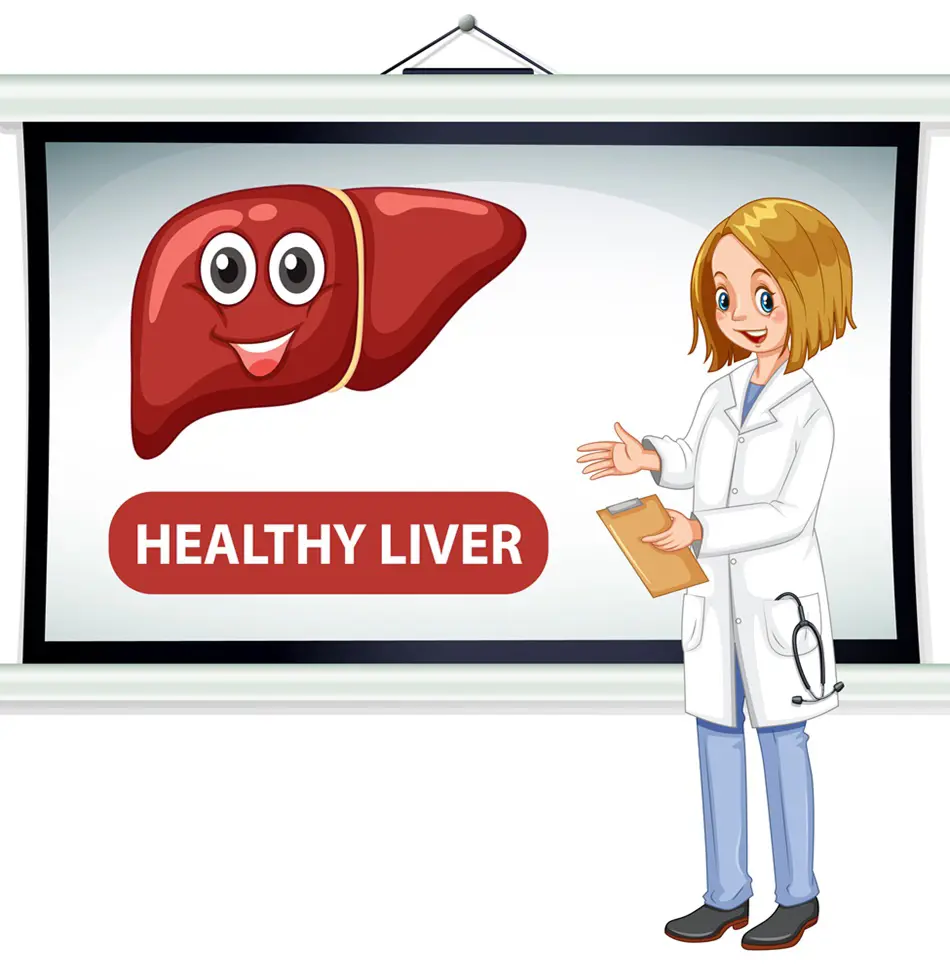
The rich antioxidant content of nutritional yeast, mainly glutathione enhances liver function. The liver heavily depends on antioxidants to detoxify the body and protect against cellular damage which can lead to serious chronic liver conditions.
By consuming nutritional yeast you can give a natural way to detoxify the liver effectively and remove waste from the overall body. It also helps to fight harmful free radicals and minimize swelling that can damage liver cells and deteriorate body function.
The necessary B vitamins help to synthesize fat and enhance the overall metabolic process which can reduce the burden from liver function. This way liver can work fluently in its detoxification and other functions to purify the body and maintain overall functioning at its peak.
Enhances Skin And Hair

With B vitamins (including riboflavin, niacin and biotin), nutritional yeast is good for your skin and hair. It is high in biotin which strengthens hair and develops resilience to brittleness.
It boosts skin suppleness through elasticity and hydration. Furthermore, zinc and selenium in nutritional yeast help to regenerate cells and repair skin tissues. This mix of nutrients is what makes nutritional yeast a must-have food for promoting healthy hair and skin.
Digestive Health

As an abundant source of dietary fiber, nutritional yeast acts as a proponent for your overall digestive health. The fiber bulks up the stool which may help to prevent constipation over time.
Eating enough fiber is associated with a lower risk for digestive disorders such as irritable bowel syndrome and colorectal cancer. Even just a serving of nutritional yeast can hit your target for daily fiber intake, which is key to gut and digestive health.
Blood Sugar Control

One of the health benefits that people talk about is it helps manage blood sugar which makes sense because all quality nutritional yeast products are low-carb. A good place to get some fiber in your diet because the greater load of contents will slow down how quickly you absorb sugar into your system, which is great for balancing blood sugars.
It looks like it would be highly beneficial for diabetic people who want to keep off sugar spikes and crashes. It also improves insulin responsiveness and maintains blood sugar by eating large amounts of nutritional yeast.
Eating nutritional yeast as part of a well-rounded diet can help with blood sugar control over the long run, which reduces your risk for type 2 diabetes.
Helps In Reducing Allergy Signs

Beta-glucan is present in nutritional yeast that are known for immune-boosting advantages. They can alter the immune responsiveness, as seen through the reduction in allergy signs.
Consuming nutritional yeast lowers allergy symptoms by prohibiting exaggerated reactions to allergens. The fiber also helps the immune cells to function in moderation, important in identifying and eliminating invaders without producing heightened reactions.
With all these benefits, including nutritional yeast in your diet can prove to help lower seasonal allergies' severity and duration.
Nutritional Profile
Here is a nutritional profile of 100 grams of nutritional yeast according to USDA:
- Calories: 400 kcal
- Protein: 60 gm
- Carbohydrates: 40 gm
- Fiber: 20 gm
- Fat: 4 gm
- Vitamin B6: 60 mg
- Folate: 1500 mcg
- Zinc: 12 mg
- Magnesium: 150 mg
- Iron: 5.6 gm
Uses Of Nutritional Yeast
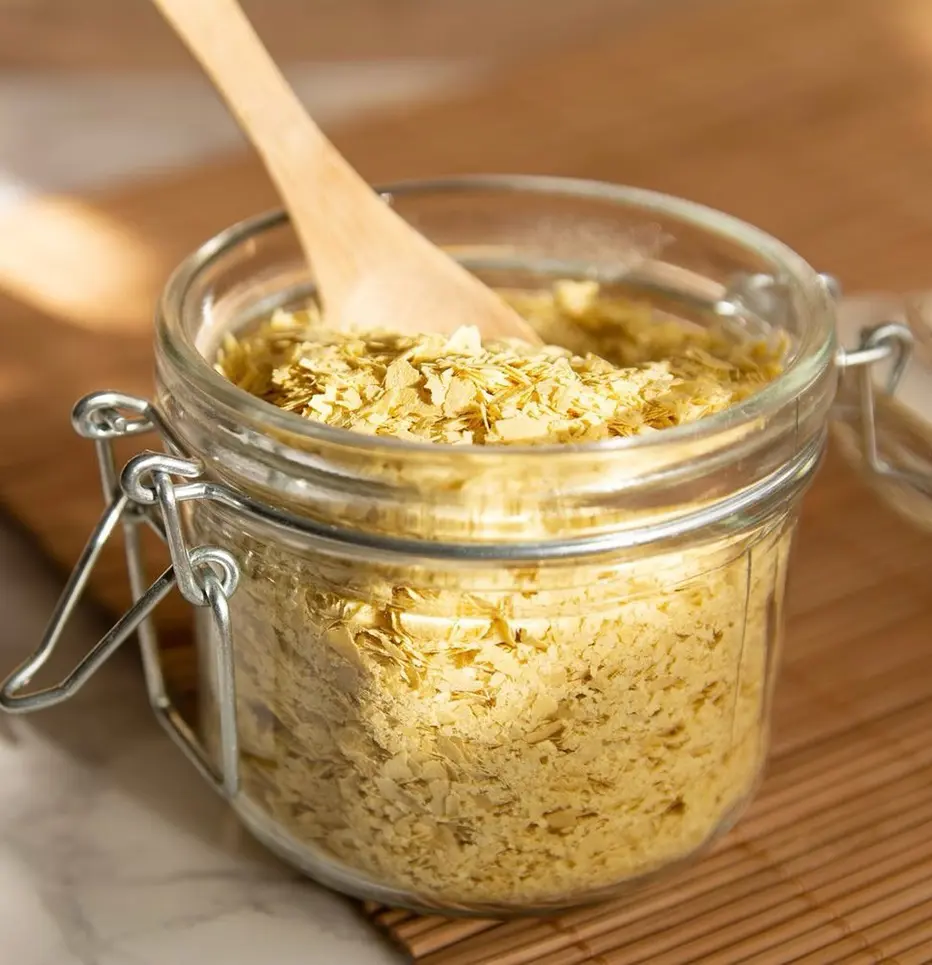
To Enhance Flavor
Richness to nearly any recipe with its distinct cheesy and nutty flavor can be provided after adding nutritional yeast. This quality makes it a good addition to a variety of dishes including salads, roasted vegetables, and many more.
This way any kind of simple or boring meal can be enhanced in flavor according to your need. In addition to that you can even sprinkle it over popcorn or soup as a finishing touch to enhance flavor.
The low-calorie option adds to its rich benefits that can even keep your calorie intake on track.
Mix In Soups And Stews
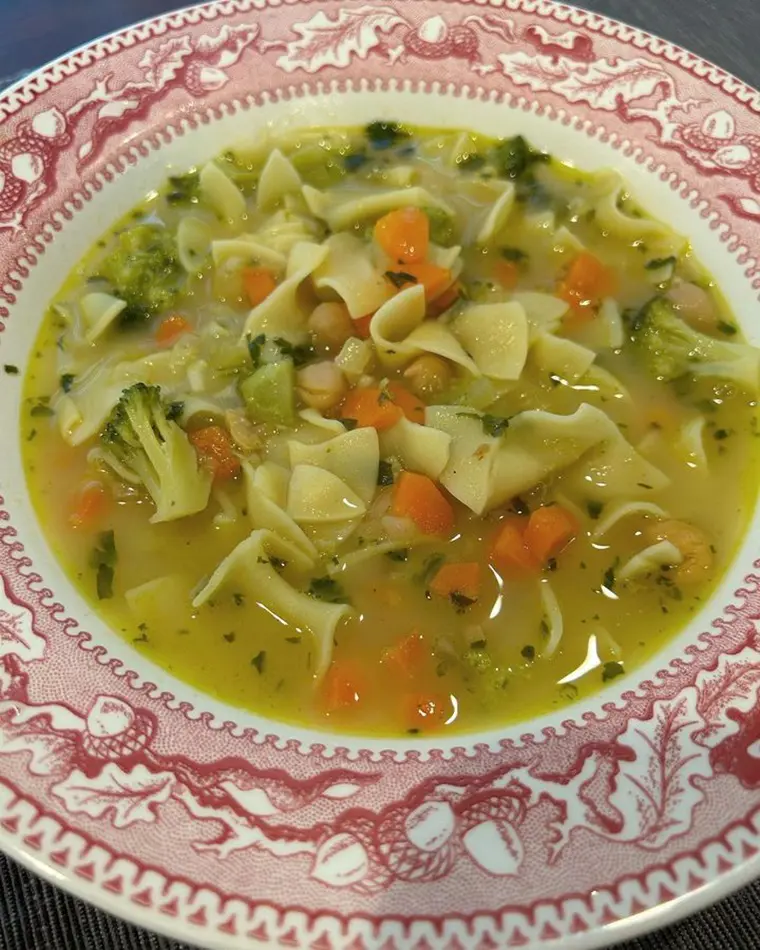
When mixed into soups and stews, nutritional yeast can add depth to flavor. Stirring a few tablespoons into vegetable or broth-based soups can create a hearty, slightly creamy texture.
This makes it an excellent choice for plant-based soups to add a touch of richness. In addition to enriching taste, while mixing into soups, the nutrient content of the meal is also increased.
It can be particularly beneficial for individuals who are looking to boost their protein and vitamin intake without adding meat or dairy. The high vitamins and protein content can make a simple vegetable soup more filling, and nutrient-dense.
Baking Purposes
Nutritional yeast gives bread/bakery stuff richness in flavor like that of cheese. You can mix it in dough and get an awesome umami-tasting ready that is not sweet but bready.
In addition, fiber and protein content is increased when nutritional yeast blends in with the dough of baked products; it also provides essential vitamins. These are more nutrient-dense than regular baked goods and help keep you full longer.
Not to worry, for all those salty snack lovers out there — nutritional yeast has got your back and even some health benefits up its sleeve.
Mixed Into Mashed Potatoes
Nutritional yeast can be stirred into mashed potatoes to create a creamy cheesy mash without butter/cheese etc. If you mash some potatoes with a few tablespoons of plant-based milk and just a splash of olive oil, they taste more like well-flavored mashed potatoes.
It makes potatoes more nutrient-rich not just tasty. But introducing fiber, a protein source, and essential vitamins into the mix turns an ordinary dish into a wholesome comfort food that is both luscious and light.
Incorporate Into Scrambles

Sprinkling the nutritional yeast mixture over tofu provides a cheesy, egg-like flavor which in return raises the flavor profile. It is great for breakfast or brunch in a scramble made with crumbled tofu, turmeric, and various seasonings.
Sprinkling nutritional yeast on top of scrambles not only gives them a bit of flavor but also packs in some extra nutrients, since it adds protein and key vitamins. It is a straightforward method to get more nutrients into your basic vegan diet and boost an energizing, brain-healthy vitamin. Nutritional yeast makes for a wholesome tofu scramble.
Limitations
In this post, we have already talked about the many pros of nutritional yeast. Although this is advantageous there are several disadvantages that should be known.
For newbies, nutritional yeast may be high in purine which the physique converts to uric acid. Those susceptible to kidney stones are likely to be affected after eating too much nutritional yeast.
Some people can be reactive in a digestive sense to yeast products. It can show symptoms of fullness, gas, and sometimes constipation.
Ingesting large amounts of certain B-complex manufacturers (like folic acid) has been known to cause neurological-related problems or other illnesses. Hence, it is always recommended to take it in small quantities to avoid rare side effects.
Other Benefits Of Nutritional Yeast
Calories
Nutritional yeast has approximately 400 kcal per 100 grams. This makes it an excellent calorie-dense food for raising energy levels.
Protein
Up to 60 grams of protein is present per 100g of nutritional yeast. It is a type of plant protein, containing the nine indispensable amino acids.
Muscle development and repair, among other entire body processes are well-functioned by consuming adequate protein.
Carbohydrates
Nutritional yeast contains 40gm of carbs that release slow-burning energy. It feeds your brain, muscles and organs as well and is perfect for those looking for something to power an all-day trek.
These carbs are more complex so it will take your blood sugar longer to absorb them, which gives a slower and steadier release of glucose.
Fiber
The same 100 gm of nutritional yeast contains over 20 gms of fiber; sufficient to maintain a regular bowel movement that prevents constipation. Their properties can provide a feeling of fullness to help us maintain or get back into shape.
Fats
Wouldn't you know, nutritional yeast is low in fat yet still has some healthy fat right are present in it. Essential fatty acids that boost brain health and skin and hormone production are found in nutritional yeast.
Vitamin B6
This is a brain function-enhancing vitamin, which also helps the body make neurotransmitters (which regulate mood). B6 has also been shown to maintain brain health and eliminate many cases of depression symptoms, with about 60mg coming from a little nutritional yeast.
Folate
Essential for cell division, DNA synthesis and tissue growth, nutritional yeast contains around 1500 mcg of folate per 100 gm serving. It is also important in fetal development (in pregnancy) to reduce the risk of babies being born with neural tube defects.
Zinc
Another essential mineral that is necessary for a proper immune system, as well as the repair of the skin by taking an active role in DNA synthesis. Zinc is an important nutrient for immunity, and there are 12 mg found in nutritional yeast (100 gm).
Magnesium
It helps muscle and nerve function, healthy bones and energy production. Plus, magnesium in nutritional yeast (a massive 150mg) is good for muscle relaxation which reduces cramping leading to a better night sleep.
Iron
Every 100 g of nutritional yeast contains approximately 5.6 mg of iron which boosts the manufacturing of red blood cells as well as helps prevent anemia. Oxygen transport in the body is vital for energy generation and overall health, so iron cannot be overlooked.
Recent posts
Lifestyle
Lifestyle
Is Ramen Healthy? Here's What Dietician Says
Ramen is a traditional dish from Japan that in the recent era has become a global phenomenon. This beloved and comforting soupy dish however has been questioned, when it comes to its nutrition. Best for those looking for a quick (instant), affo...
Lifestyle
Is Agave Good For You? Benefits, Uses And Risks
When you stroll through the sweetener section at a supermarket or any other store, you probably notice bottles of golden agave nectar or agave's inulin with labels boasting claims like "natural" and "healthy". But is this viscous sweetener which come...
Lifestyle
Is Monk Fruit Healthy? Benefits, Nutrition And Risks
Monk fruit is a simple vine of the gourd family that has recently gained fame as a sweetener. The fruit is hard to find in the market and has been less cultivated around the world, it's native to Southeast Asia. A zero-calorie sweetener, there is a l...
Lifestyle
How Much Caffeine Is in Green Tea
Green tea, a tea popular for its health benefits, comes with a gentle caffeine boost. Due to this low caffeine level, the drink can be considered perfect for those who want to stay alert without the jitters. The availability of caffeine in green tea ...
Lifestyle
The Benefits Of Avocado Seeds You Must Know About
After devouring the avocado, we have the habit of dumping the seed without giving it a second thought. However, this part of the fruit is just as essential as the avocado because it delivers numerous nutrients and potential health benefits that might...
Lifestyle
How Much Caffeine Is Too Much In One Day?
Without even realizing it, caffeine is stapling in our everyday lives. Our mornings usually begin with a cup of coffee, likewise, to get through the afternoon slump we might sip on an energizing drink or grab a refreshing soda on a sunny day to quell...


